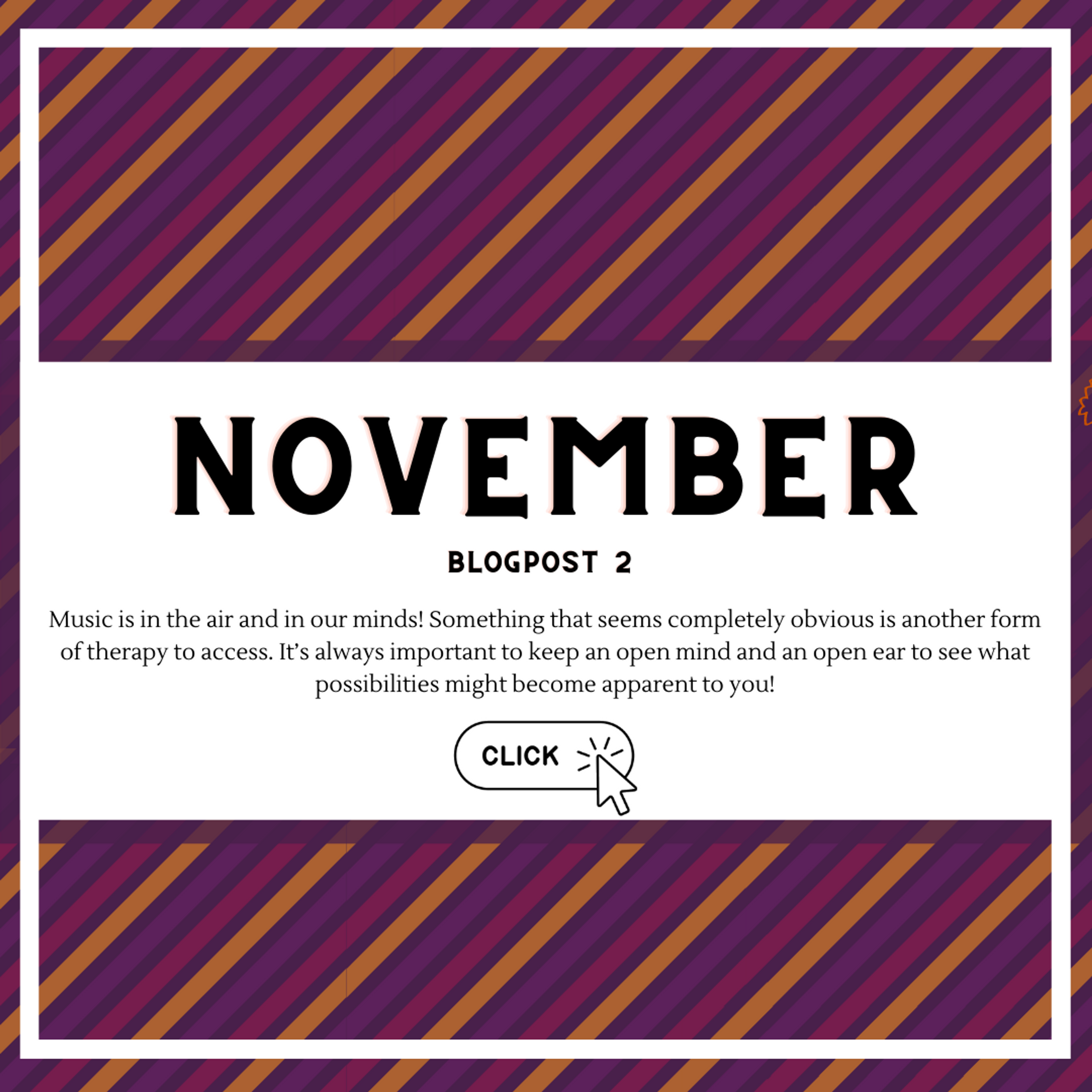Here ye! Here ye! I come bearing a message! Or rather an informative blog post! Reading week at the St. George campus has just ended and back to it. It’s already the middle of November which means finals for this semester are right around the corner! Although my time management skills seem to have improved this year I found myself running behind schedule this reading week, having to leave a few things to the last minute. It was however not all so bad and I was even able to take a few hours out of the week to spend some quality time with family rewatching The Hobbit movies. The entire month I’ve been thinking about what I wanted this second blog post to be about and while the end credits of the last Hobbit film rolled by I found myself humming along to the music. This of course led me down a rabbit hole and here we are! A wonderful new discovery that I have made in my passion and pursuit of educating myself on mental health, and more specifically what kinds of therapy options exist out there for people to access. Something that some may have already been acutely aware of, but music therapy!
Maybe screaming out the lyrics to your favourite rock song, disney tune, or crying along to a sad song have helped you relieve stress in the past but low and behold there is even a type of therapy that utilizes music as a form of treatment. Some of the conditions it is used to treat include : emotional trauma, pain control, physical disabilities, mental health challenges etc. (1) Similar to other forms of therapy such as Cognitive Behavioural Therapy (CBT) it uses a variety of strategies and techniques to help the patient. Singing, listening, composing, playing, and improvising are all some of the forms in which musical therapy takes place. (2) The Canadian Association of Music Therapists are responsible for administering this type of therapy and care. They are “a federally incorporated, self-regulated non-profit professional association dedicated to fostering the practice of music therapy in clinical, educational, and community settings throughout Canada.” (3) This is just one of the many varieties and options that you can access while looking for the best type of therapy for you!
Even if music therapy in a more clinical and formal setting doesn’t feel like the right thing, music can still help your mental health. Music has in many ways, the ability to bring forth emotions that can feel difficult to express and feel extremely liberating when listening to it.
Whether you like music to scream to, or music that makes you cry, music is something that can help you work your way through difficult times and emotions. Only a few weeks left until the winter break, we got this!!
_________________________
1 “About Music Therapy,” Canadian Association of Music Therapists, September 2020, https://www.musictherapy.ca/about-camt-musictherapy/about-music-therapy/.
2 Ibid.
3 “About CAMT,” Canadian Association of Music Therapists, accessed November 12, 2020, https://www.musictherapy.ca/about-camt-musictherapy/about-camt/.
